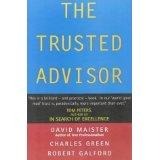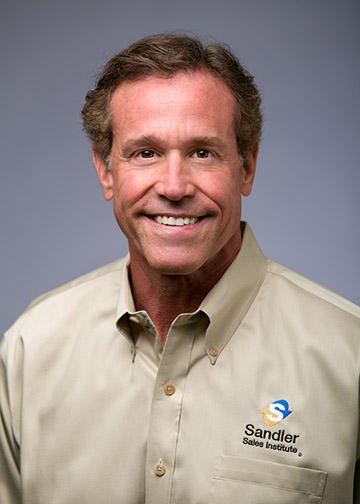Are you a Trusted Advisor or a vendor? What’s the difference? Lots! Trusted Advisors have earned the following: getting new business without price objections, clients and customers ask for recommendations (and they follow them), and they are introduced to other top decision makers who want to do business with them. Vendors have to live with the opposite of these. So, which part of the equation would you like to be? Don’t be so quick to answer because it is not for the light of heart or character. Are you willing to pay the price and make the investment that all trusted advisors have to earn?
In PC we referred to the book Trusted Advisor by David H. Maister and the evolution in the business cycle to become one. That cycle begins with the vendor at the bottom and the 4th stage is trusted advisor. The trusted advisor has both breadth of knowledge on business issues and has developed a great personal relationship with the client/ customer. If you think about it, how many trusted advisor relationships do you have? How many more are needed for you to have economic security? You know, where you’re not scrambling each month for enough new revenue.
Did you know there is an equation for trusted advisor? It’s Trust=credibility+ reliability+intimacy/self-orientation. If I have credibility, then my clients trust my words. If I have reliability then my clients trust my actions and know I will do what I say I’m going to do. If I have intimacy, then my client has a safe place to speak and knows the conversation stays between us. Self-orientation means my client trusts my motives; that it’s not just about me it’s about us.
How does the Sandler Selling methodology match with trusted advisor? Really well! How well you say? By using the pain funnel and the types of questioning and listening skills we practice. It’s not the questions themselves (refer to pain funnel questions) it’s more of my listening skills, and we practiced three types.
The first is called “reflective listening.” What I hear you say is _______.
The second is called “supportive listening.” Gee that must be tough _______.
The third is “listening for possibility.” So what have you thought about dealing with that?
This is how you earn trusted advisor status, not telling someone how to do something, but allowing them to discover their own issues and helping them to figure out what to do. Only when someone says “help me”, or “I need help _____” (after the discovery process) I can add some suggestions only, and then ask which ones they’re comfortable moving forward with.
What about you? Who do you have as a customer or client that looks to you as a valuable resource and is buying now from you; yet with a little work could help them to look at you as trusted advisor? Make a list, schedule some time with them, and write down beforehand the kinds of questions you’d like to ask. Also, whenever you and a prospect are in the pain funnel, slow down and use one of the above three listening techniques. That’s what makes the pain funnel come alive- show that you care and care deeply. Don’t sell……….really, really listen and keep asking.

Good selling,
Jim Dunn
Sandler Trainer

Jim Dunn
Jim Dunn has been a regional franchise owner of Sandler Training since 1992. Dunn Enterprises' Mission is to help people and companies realize their full potential and to train and coach business professionals who believe in growth achieved through on-going reinforcement.



